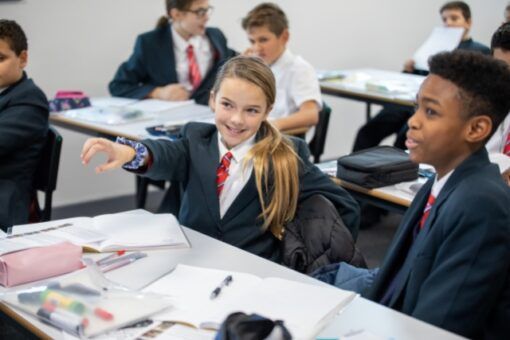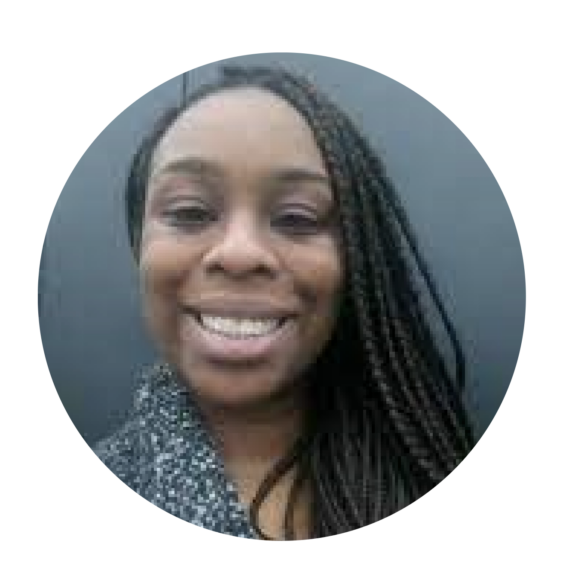
For this month’s edition of #ArkPeople, we caught up with Elmina Ferguson-Small, Head of English at Ark Pioneer Academy.

Elmina Ferguson-Small
She talked to us about why she’s so passionate about her job and, as we celebrate Black History Month, the importance of diversity in the English curriculum.
She has recently worked with the designers of Ark Curriculum Plus’s English Mastery curriculum programme to help them incorporate a wider range of voices into their content.
While discussing her work to increase diverse representation in English, Elmina said, “It’s vital that students have access to diverse voices, and I want them to constantly challenge the notion of the western canon as, sadly, it’s still old, white, dead men; students need to build a canon of their important writers.
“If you’re at our school and regardless of your culture, I want to ensure that we’ll have a book that reflects your background. For example, I’ve bought books by writers exploring refugee life because many of my students have been refugees.
“This resonated with students who had been in a detention centre. They could see themselves and shared their experiences with the class. For last year’s Black History Month, we created a booklet of different texts by black authors, so students had a plethora of text by writers they knew and some they didn’t.
“I was delighted to be involved in English Mastery’s Equality, Diversity and Inclusion work. I’ve taught The Tempest several times as part of English Mastery’s curriculum; I love the play and performed it as a child.
“However, I felt very uncomfortable because of the images and the lack of conversation about colonisation. I always thought that it was rushed. I want our students to have the time and space to argue about things, question how certain groups were dehumanised throughout history, how they were used as human capital, and what that means.
“I looked at some of those lessons and consulted quite a lot on the images, as they are powerful and problematic. Suppose I’m telling students that everyone is wonderful and equal, but you only see the same types of faces on my slides and around you. It makes it very challenging for a student to trust me, feel equal or believe that equality is achievable for them.
“We revised how we taught the colonisation section so it’s no longer a quick snapshot of what happened. We’re building students understanding of the world and understanding that the history of colonisation still bears weight. Many students have come from countries where they were colonised, not only by the British but also from other European countries. We need them to think about what that means when reading the play in 2021.”
On her job as Head of English, Elmina added, “We’re building not only great English students but articulate speakers. I want students to have a voice and be comfortable writing. Whether it’s an email, a letter, a novel, or their contract one day for their job – they’ll be able to question it if there’s something wrong.
“We have reading programmes for students because they have different reading ages and this has enabled us to make a big difference for our students. One of my students has gone from a reading age of 11 to 17 in a year, and another went from eight to 12.
“Teaching is the most important thing I do every day and not only in the classroom. As I walk around the school, I speak to students that I don’t teach personally, but who send me their writing because they’re interested in creative writing, novels or essays.”
Reflecting on the Ark network and its impact, Elmina continued, “I feel incredibly supported by Ark, and I’ve been allowed to find my voice as head of a department and inform what others are doing. It’s also been great to work with English Mastery as it enables me to have a hand in the curriculum both across the network and beyond it, to ensure schools across the country have access to diverse voices.”
To find out how English Mastery is building a more diverse range of voices into its curriculum, read their report.